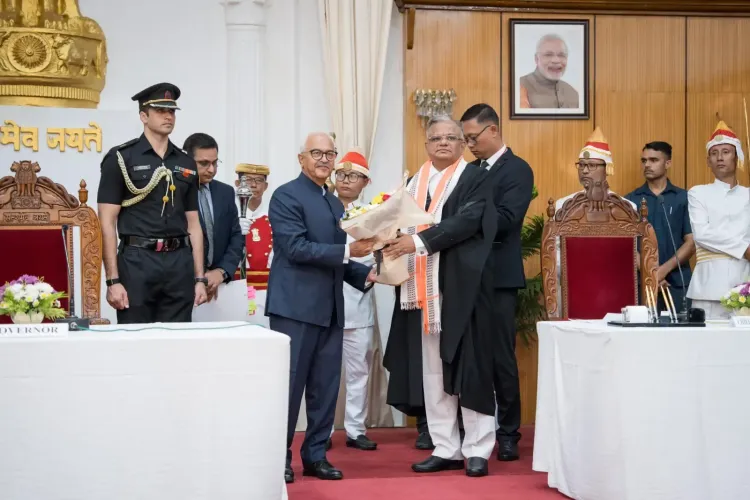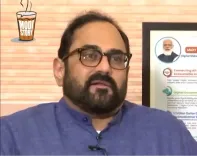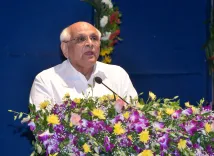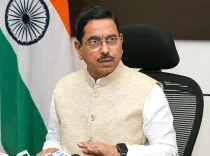Who is the New Chief Justice of Manipur High Court?

Synopsis
Key Takeaways
- Justice M. Sundar sworn in as 10th Chief Justice of Manipur High Court.
- Governor Ajay Kumar Bhalla administered the oath.
- Justice Sundar has extensive experience in civil law.
- He was previously associated with the Madras High Court.
- His leadership is anticipated to improve legal proceedings in Manipur.
Imphal, Sep 15 (NationPress) Justice M. Sundar was formally sworn in as the 10th Chief Justice of the Manipur High Court during a ceremonial event held at the Raj Bhavan on Monday. The oath of office was administered by Governor Ajay Kumar Bhalla at the prestigious Darbar Hall.
Appointed by President Droupadi Murmu on September 13, Justice Sundar succeeds Justice Kempaiah Somashekar, who recently retired.
The swearing-in event was attended by notable figures, including Manipur Assembly Speaker Thokchom Satyabrata Singh, various MLAs, High Court Judges, Chief Secretary Puneet Kumar Goel, Security Advisor Kuldiep Singh, and Director General of Police Rajiv Singh, along with representatives from civil, police, military, and judicial sectors, as well as Bar Associations.
Born on July 19, 1966, in Chennai, Justice Sundar completed his law degree at Madras Law College, being part of the inaugural class of the five-year integrated Law Course, and began his legal career as an Advocate in 1989.
Prior to his elevation, he was predominantly associated with the Madras High Court, where he dealt with a diverse range of civil cases.
Justice Sundar also served as the Standing Counsel for the Tamil Nadu Water Supply and Drainage Board from 2003 to 2006.
He became a permanent Judge of the Madras High Court on October 5, 2016. The Supreme Court Collegium recommended his appointment as the Chief Justice of the Manipur High Court during a meeting on September 11, following Justice Somashekar's retirement on September 14.
The Manipur High Court was established in March 2013, along with the High Courts in Meghalaya and Tripura, as all northeastern states, excluding Sikkim, were previously under the Gauhati High Court.







